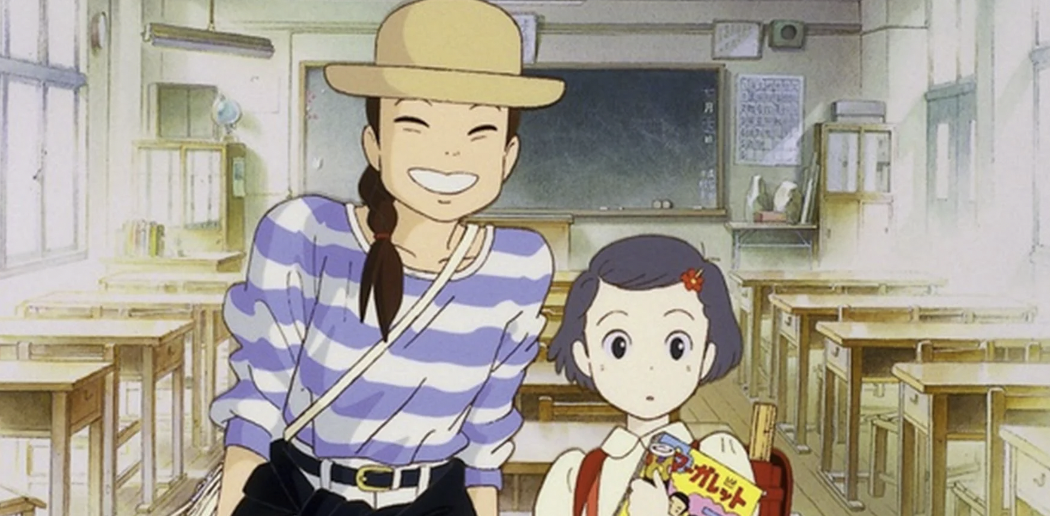Looking at Takahata Isao’s animated film Only Yesterday, Katherine Heller discusses its portrayal of childhood and nostalgia and how we can connect with one another through such memories.
There is something about animation that makes it the perfect medium for nostalgia and stories of reminiscence. Perhaps it is that, rather like the human memory, animation allows for an impression of life, rather than a complete reflection. One film that captures the dreamy yet raw quality of childhood memories perfectly is Takahata Isao’s 1991 film Only Yesterday, produced by the famed animation company Studio Ghibli.
For viewers familiar with Ghibli’s more fantastical output, such as Spirited Away (2001) and Howl’s Moving Castle (2004), Only Yesterday may seem somewhat of an outlier; a down-to-earth tale of a young woman’s trip to the countryside and memories of her childhood. However, this story of memory and identity is presented with such atmosphere that it encourages the viewer to dream just as much as any other Ghibli fantasy. Only Yesterday is based on a manga series that depicts the everyday life of a young girl named Taeko. Takahata uses memory and flashback as a framing device in his film adaptation. Our central character, Taeko, is shown to us as a 27-year-old unmarried woman, living and working in Tokyo. She decides to take a break from city life and go stay on the farm of her sister-in-law’s. During this trip she is overcome with memories of her life at age 10, in 1966.
Taeko is the youngest child in her family, and notes that her recollections of this time are very different to those of her two elder sisters. Her sisters’ memories of 1966 revolve around pop culture: listening to The Beatles and wearing miniskirts. Taeko’s memories centre on the everyday – friendships, first crushes, puberty, schoolwork and family tensions. I find that my memories of life at age 10 (although this was in 2006 rather than 1966) are much the same. Only Yesterday’s portrayal of Taeko’s memories – often in a relatively muted pastel palette, with a poignant score by Hoshi Katsu – is almost exactly how I would imagine an audiovisual representation of my own memories.
In addition to its realistic portrayal of bittersweet nostalgia, I can also attest somewhat to the accuracy of the period detail. One of Taeko’s memories is of the day that her father brought home a pineapple. No one in the family had ever seen a real pineapple before. They aren’t sure how to slice it, so put it aside. Taeko’s eldest sister, Nanako, comes home the next day having found out how to eat this exciting fruit! They slice and eat the fruit, not knowing that it is still unripe. The whole family is disappointed and the middle sister, Yaeko, even expresses that tinned pineapples are much nicer. My father, born in 1960, finds this scene greatly entertaining, recalling similar excitement in his family when his father brought home a mango. Luckily, they knew to wait until it was ripe! It just goes to show: memories of growing up can be very similar, whether they were made in Tokyo or Edinburgh! Takahata is masterful in selecting recollections that resonate with viewers of many ages and backgrounds. We are inevitably drawn into Taeko’s story by its parallels with our own – her nostalgia fuels ours.
As I approach the age of 27 myself, I find that this film draws ever closer to my heart. If a trip down memory lane is what you desire, Only Yesterday may prove the perfect starting-off point.
by Katherine Heller

